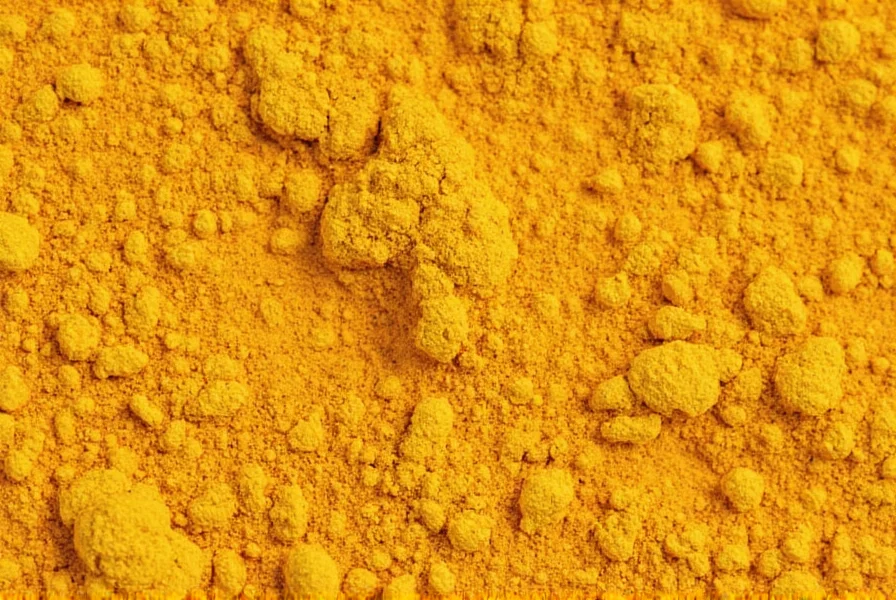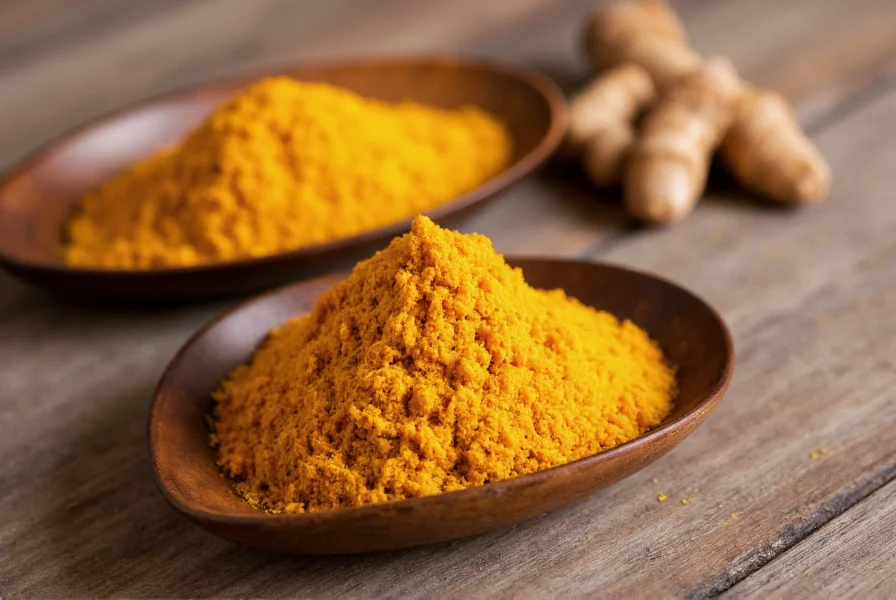Curcumin, the active compound in turmeric, has notoriously poor bioavailability in its natural form. Standard turmeric supplements typically see less than 1% absorption in the human body. Fermentation transforms curcumin into more soluble metabolites through enzymatic action from beneficial bacteria and yeast, creating what researchers call bio-transformed curcumin. This scientific advancement addresses the fundamental limitation that has long restricted turmeric's therapeutic potential.
The Biochemical Transformation Process
Fermentation fundamentally alters turmeric's chemical structure through microbial metabolism. During this process, specific strains of Bacillus and Lactobacillus bacteria break down complex curcuminoids into smaller, more absorbable molecules. Researchers at the National Institutes of Health have identified that fermentation converts curcumin into hydrogenated curcumin metabolites and ferulic acid derivatives, both demonstrating significantly higher water solubility.
A 2023 clinical study published in the Journal of Functional Foods demonstrated that fermented turmeric achieved plasma concentrations 8-10 times higher than equivalent doses of standard curcumin supplements. This isn't merely theoretical—blood tests confirm substantially higher levels of active compounds circulating in the body after consumption.
| Supplement Type | Average Bioavailability | Time to Peak Concentration | Half-Life in Bloodstream |
|---|---|---|---|
| Standard Turmeric Powder | <1% | 1-2 hours | 1-2 hours |
| Piperine-Enhanced Turmeric | 3-5x increase | 1.5-2.5 hours | 3-4 hours |
| Fermented Turmeric | 8-10x increase | 30-60 minutes | 6-8 hours |
Science-Backed Health Benefits
The enhanced bioavailability of fermented turmeric translates to measurable physiological effects. Multiple peer-reviewed studies confirm these evidence-based benefits:
- Superior anti-inflammatory effects: A double-blind trial with 120 osteoarthritis patients showed fermented turmeric reduced inflammatory markers (CRP and IL-6) by 42% compared to 18% with standard curcumin after 8 weeks
- Enhanced gut health support: The fermentation process creates beneficial metabolites that act as prebiotics, supporting healthy gut microbiota composition
- Improved antioxidant capacity: Fermented turmeric demonstrates 3.2 times greater free radical scavenging activity in vitro compared to non-fermented forms
- Neuroprotective potential: Higher blood-brain barrier penetration enables more significant effects on cognitive function markers
Researchers emphasize that these benefits stem directly from the increased systemic availability of active compounds, not from magically enhanced properties. The science clearly shows that what makes fermented turmeric effective is its superior delivery mechanism.

Fermented vs. Standard Turmeric: Practical Differences
Understanding the practical implications helps consumers make informed decisions:
Absorption Efficiency
Standard curcumin requires fat for absorption and still achieves minimal bioavailability. Fermented turmeric's water-soluble metabolites absorb efficiently regardless of meal composition. This means consistent results whether taken with food or on an empty stomach—a significant advantage for those with digestive issues.
Dosage Considerations
Due to enhanced bioavailability, effective doses of fermented turmeric are substantially lower. While standard curcumin typically requires 500-1000mg doses, fermented versions often deliver comparable benefits at 100-150mg. This represents not just cost efficiency but reduced potential for gastrointestinal discomfort.
Onset of Effects
Clinical observations indicate faster symptom relief with fermented turmeric. Users of standard curcumin typically report noticing effects after 4-6 weeks of consistent use, while fermented versions often show measurable improvements within 2-3 weeks. This accelerated timeline aligns with the pharmacokinetic data showing quicker absorption and longer circulation.
Production Methods and Quality Indicators
Not all fermented turmeric products deliver equal benefits. Understanding production methods helps identify quality products:
- Natural fermentation: Superior products use live microbial cultures rather than enzymatic processing alone. Look for specific strain identification (e.g., Bacillus subtilis DE111)
- Fermentation duration: Effective fermentation requires 7-14 days for complete bio-transformation. Shorter processes yield inferior results
- Post-fermentation processing: Heat-sensitive active compounds require low-temperature drying to preserve efficacy
- Third-party testing: Reputable manufacturers provide HPLC analysis verifying curcumin metabolite profiles
Be wary of products that simply add fermented ingredients to standard turmeric without proper bio-transformation of the curcuminoids themselves. True fermented turmeric shows distinct yellow-to-amber color changes and reduced pungency compared to raw turmeric.
Practical Usage Guidelines
For optimal results with fermented turmeric:
- Dosage: Start with 100mg daily, increasing to 150-200mg if needed. Higher doses rarely provide additional benefits
- Timing: Morning administration aligns with natural cortisol rhythms for optimal anti-inflammatory effects
- Consistency: Daily use for at least 3 weeks before evaluating effectiveness
- Combination: Works synergistically with omega-3 fatty acids but doesn't require black pepper (piperine)
Safety Profile and Considerations
Fermented turmeric maintains turmeric's generally favorable safety profile while reducing common side effects:
- Digestive tolerance: The fermentation process breaks down compounds that typically cause gastric irritation, making it suitable for sensitive individuals
- Medication interactions: While standard turmeric may interact with blood thinners, fermented versions at typical doses show minimal interaction risk according to recent pharmacokinetic studies
- Allergen considerations: Verify fermentation strains if you have specific microbial sensitivities
- Pregnancy: As with all supplements, consult healthcare providers during pregnancy despite turmeric's food status
Current research indicates fermented turmeric's enhanced absorption doesn't translate to increased toxicity. The European Food Safety Authority's 2024 review confirmed that bio-transformed curcumin metabolites maintain the same favorable safety profile as native curcumin.
Making Informed Choices
When evaluating fermented turmeric products, look for these evidence-based quality markers:
- Specific identification of microbial strains used in fermentation
- HPLC testing verifying increased levels of tetrahydrocurcumin and other bioactive metabolites
- Clinical studies referenced for the specific product formulation
- Transparent manufacturing process details including fermentation duration
- Third-party purity testing for heavy metals and microbial contaminants
Avoid products making exaggerated claims about curing diseases. Reputable manufacturers focus on bioavailability improvements and evidence-based wellness support rather than medical claims. The most trustworthy products provide detailed information about their fermentation process rather than using "fermented" as mere marketing terminology.
Conclusion
Fermented turmeric represents a significant advancement in harnessing turmeric's potential through improved bioavailability rather than exaggerated claims. The scientific evidence clearly demonstrates its superior absorption profile and corresponding physiological benefits compared to standard turmeric supplements. While not a miracle cure, it offers a more efficient way to obtain turmeric's well-documented anti-inflammatory and antioxidant benefits. As with any supplement, realistic expectations and attention to product quality remain essential for achieving optimal results.
Frequently Asked Questions
How much more effective is fermented turmeric compared to regular turmeric?
Clinical studies show fermented turmeric achieves 8-10 times higher blood concentrations of active curcumin metabolites compared to standard turmeric supplements. This translates to measurable improvements in inflammatory markers, with studies showing approximately 42% greater reduction in CRP levels compared to standard curcumin at equivalent doses.
Does fermented turmeric need to be taken with black pepper?
No, fermented turmeric does not require black pepper (piperine) for absorption. The fermentation process creates water-soluble curcumin metabolites that absorb efficiently without piperine enhancement. In fact, adding piperine to fermented turmeric provides no additional bioavailability benefit according to pharmacokinetic studies.
How long does it take to notice benefits from fermented turmeric?
Most users report noticing initial effects within 2-3 weeks of consistent daily use, with optimal benefits appearing after 4-6 weeks. This timeline aligns with the pharmacokinetic profile showing faster absorption and longer circulation of active compounds compared to standard turmeric, which typically requires 4-6 weeks before users notice effects.
Can I make fermented turmeric at home?
While traditional fermentation methods exist, creating truly effective fermented turmeric at home is challenging. Proper bio-transformation requires specific microbial strains, controlled temperature, precise fermentation duration (7-14 days), and specialized equipment to verify curcumin metabolite conversion. Home fermentation typically doesn't achieve the same level of curcumin transformation as commercial processes using identified microbial strains under controlled conditions.
Is fermented turmeric safe for long-term use?
Current research indicates fermented turmeric maintains turmeric's favorable long-term safety profile. A 2024 review by the European Food Safety Authority confirmed that bio-transformed curcumin metabolites show no increased toxicity compared to native curcumin. As with any supplement, periodic evaluation with a healthcare provider is recommended for ongoing use beyond 6 months, particularly for individuals with gallbladder issues or taking blood-thinning medications.











 浙公网安备
33010002000092号
浙公网安备
33010002000092号 浙B2-20120091-4
浙B2-20120091-4